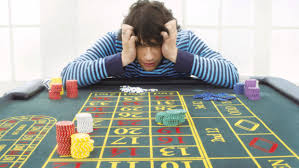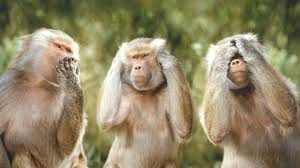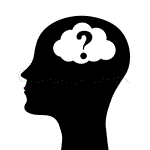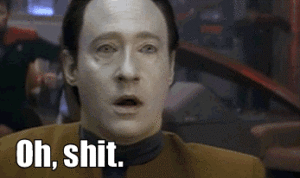You lose! Surprise!

Surprise!
I find it odd that most people only learn things (if they do at all) after they realize that they personally have something at risk.
What is really remarkable is that they don’t notice this pattern and thus never arrive at the conclusion that they have always got something very valuable at risk; their lives, their happiness, their wellbeing, and so forth. They don’t see that they are always gambling everything on ignorance, to keep them “safe”.
That this is true is not a secret waiting to be discovered – it’s obvious – so it must be that people don’t want to know what they have at risk and therefore don’t really want to learn anything.
Lying, sweetly or not

Ingenious = clever
Disingenuous = not so clever (lying)
Disingenuousness = acting like a fool (expecting others to believe your lies)
Delusional = believing that others have bought your lies without noticing that you were lying
Distracted = too stupid to lie or too lazy to lie
I guess it depends on what you want.

You can’t find what you are not looking for
Most people never look for things they don’t want to see
Apparently, any thirst for the truth has been successfully beaten out of them
Seeking
Very few beings really seek knowledge in this world – few really ask. On the contrary, they try to wring from the unknown the answers they have already shaped in their own minds – justifications, confirmations, forms of consolation without which they can’t go on. To really ask is to open the door to a whirlwind. The answer may annihilate the question and the questioner.
– The Vampire Lestat, pp. 332-333, Anne Rice
Mind’s eye

No one starts out knowing how cognitive functions, cognitive development and life experience affect what we are able to see and how it is seen. However, you can learn how cognition affects what you can and can’t see, and how you understand what you see. That is its own step along the path of cognitive development. Once you have learned that, you can see more, see farther, and see more clearly. There is no other known process for opening the mind’s eye.
Dog cognition

That’s 50 kilos of Komondor
I noticed that early in the morning my dog does not look out the window to see if it is still dark. Instead, she goes to the top of the stairs and looks down the stairwell. Apparently, if it is dark “down there” then it must be dark outside.
However, this morning at first light she looked down the stairs and was apparently unsure whether it was morning yet. So, then she looked outside and confirmed that it was indeed getting light.
If looking outside is the definitive check, why doesn’t she do that first?
